A New American Republic AAR
- Thread starter unmerged(59851)
- Start date
-
We have updated our Community Code of Conduct. Please read through the new rules for the forum that are an integral part of Paradox Interactive’s User Agreement.
You are using an out of date browser. It may not display this or other websites correctly.
You should upgrade or use an alternative browser.
You should upgrade or use an alternative browser.
This is just a short update, but it's just about it from now until the Great War.
* * *
The Community of Nations
1877-1905
* * *
The Community of Nations
1877-1905
The new nation was quickly accepted into the Community of Nations. It was the newest, formed six years after the German Empire. The Union pushed for freedom of speech, freedom of religion, and human rights (always popular), and renewed the Monroe Doctrine, effectivley telling the Europeans to butt out of the Western Hemisphere (not as popular).
The Cuba Crisis
In 1881, the island of Cuba flared into rebellion against Spain. The Union pressured Spain to back off, but it brushed aside the concerns of the USAF. Spain crushed the rebels, but worried about future revolts. It looked at the British example, and offered to sell it to the UNA for $45 million. President Sherman agreed, and congress approved. On September 24, 1881, Cuba peacefully transfered hands and became the Cuba Territory in the UNAS. Similar linguistic programs would be used on the island, and, once it had learned enough English, it could enter the Union.The Guianan War
In 1895, a crisis in South America lead to war. The conflict began as a border dispute between the United Kingdom and Venezuala, with both claiming part of each other's territory.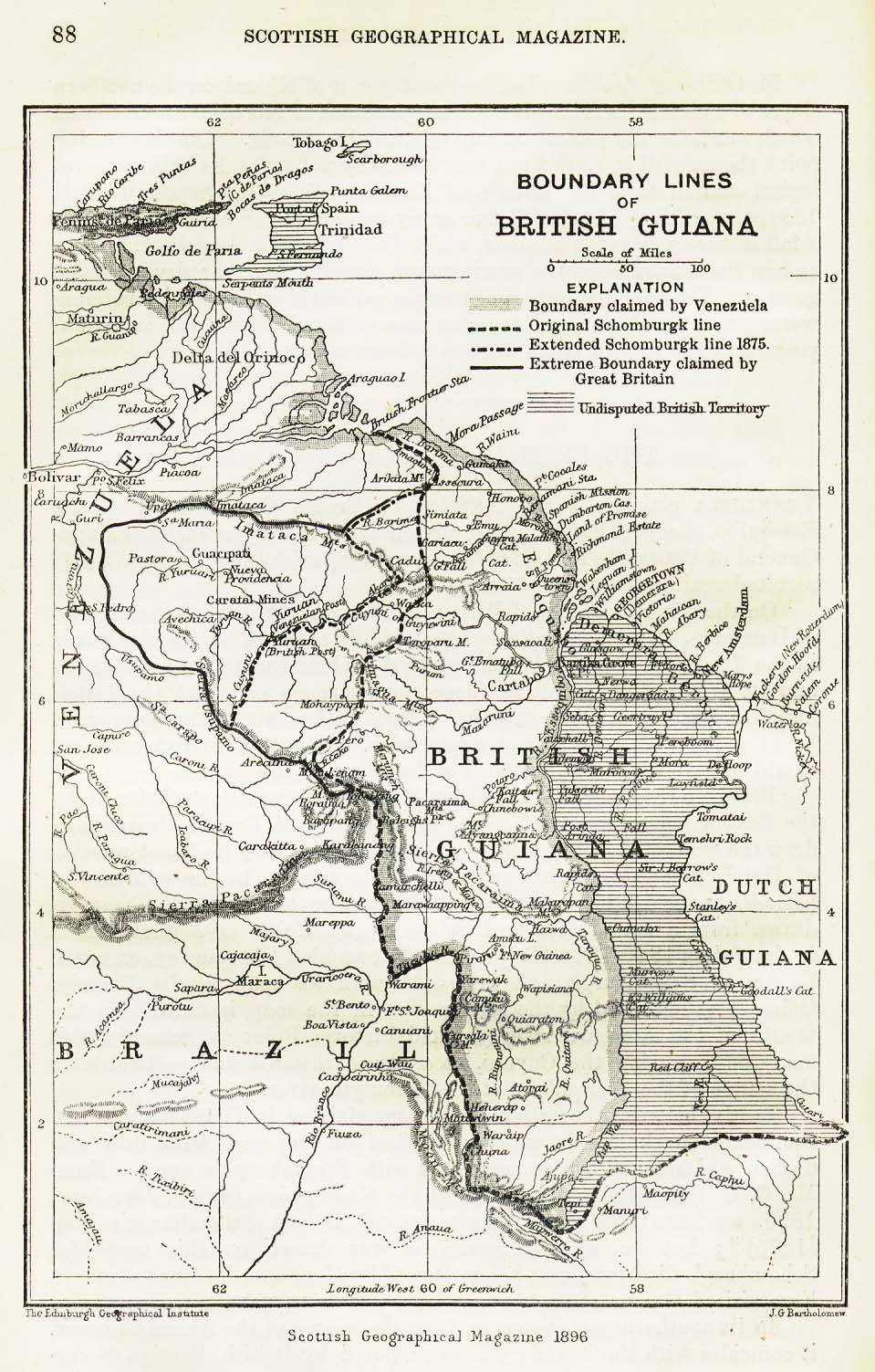
British-Venezuelan Territorial Claims in Guiana
Both the U.K. and Venezuela moved troops to the Guianan border. It looked like it was going to get ugly, and the UNAS threatened to get involved if a war broke out, citing the Monroe Doctrine and forcing the British to back off a little.
Just when things were looking good, a newly expansionist Columbia declared war on Venezuela. With most Venezuelan troops at the Guianan border, the Columbians quickly overan the country and annexed it. When the Columbians came closer to Guiana, the British moved out, siezing as much of it as they could before the Columbians did. The border became, roughly, the Schomburgk line.
The Phillipine War
In 1896, the Spainish were again fighting rebels, this time in the Phillipines. After two grueling years, the Spainairds were growing weary of the fighting, and international powers, notably Japan, pressured them to release the Phillipines as an independant county. In 1899, the independant Republic of the Phillipines was declared. Japan, it seems, was waiting for this to happen. After all Spanish troops had withdrawwn, an international incident was made of the murder of a naturalist who was also a Japanese national. Japan quickly used this excuse to declare war on the Phillipines, and annexed it. Protests from the international community were few, as, by the time word had gotten out, the war was over, with a decisive Japanese victory.
Japan later bought Guam from Spain.
Randwulf said:This UNAS is going to be a monster powerhouse. Who will be its 'natural' enemies?
I imagine Britain and Japan, as being the two main nations with powerful fleets on each particular ocean.
nooooooooooooo.... the philippines.... under the japanese..... why!..... o dear god why!?......
The Great War
1914-1917
In 1914, a Great War broke out on in Europe. It was a war between the 'Allies', the British Empire, France, and Russia; and the 'Central Powers' of Germany, the Ottoman Empire, and Austria-Hungary. The new weapons of war changed everything, and yet changed nothing. The war degraded to trench warfare, and lagged on.As it continued, new nations joined the fighting, and the war spread. Japan, Brazil, Chile, Uraguay, the new Chinese Republic, Romania, many of the Balkan countries, and others joined the Allies, and Bulgaria, Columbia and Argentina joined the Central Powers. The combatants attacked each other's colonial holdings in Africa; Australia siezed Germany's holdings on Paupa New Guinea, Japan took Germany's Pacific islands.
In Europe and South America, the fighting was particularly intense. In Europe, on the Western Front, Germany attacked France through Belgium, coming to the suburbs of Paris before being pushed back. On the Eastern Front, Russia threw huge numbers of soldiers at the Germans and Austria-Hungarians. In South America, Columbia and Brazil tangoed in the Amazon and Argentina, taking a leaf from Germany's book, attacked Brazil through Bolivia.
The UNAS strongly disapproved of Germany's practice of unrestricted submarine warfare, and many were upset by Germany and Argentina attacking their neutral, smaller neighbors. The UNAS also felt strong cultural ties with Great Britain, Ireland (then part of Great Britain), and, especially in Quebec, France. The Union was eventually pulled into the war by the continued submarine warfare and the Zimmerman Post, a message to certain political leaders in the South promising its "long suppressed independance" for rebelling against the Union.
With the Zimmerman Post, President Roosevelt, a transplanted New Yorker living on his ranch in Alberta, asked Congress to declare war on the Central Powers. In his speech to Congress, he said the following:
The UNAS entry into the war in 1916 brought fresh troops to the Western Front and to the South American Allies. The new troops, as well as a new British invention, the 'Tank', helped push the Germans back through Belgium. In South America, the border stabalized on the Columbian/Brazilian border, and the Argentinans were pushed back into northern Bolivia. They were, however, too late to save Chile, which was annexed by Argentina.President Theodore Roosevelt said:Any country whose people conduct themselves well can count upon our hearty friendship. If a nation shows that it knows how to act with reasonable efficiency and decency in social and political matters, if it keeps order and pays its obligations, it need fear no interference from the United States. Chronic wrongdoing, or an impotence which results in a general loosening of the ties of civilized society, may in America, as elsewhere, ultimately require intervention by some civilized nation. The Central Powers have demonstrated by their chronic wrongdoing, that the Union of North America must be involved in setting them straight. The Empire of Germany has sunk many ships, and, in the process, killed hundreds of American Citizens. The Empire of German has tried to stir up rebellion in our great nation. Now, since the dastardly scheming of Germany, I ask Congress to declare a state of war has existed between the Union of North American States and the German Empire.
In early 1917, Russia became involved in another war: the one at home. The Bolsheviks overthrew the Provisional Government, and sued for peace with Germany. The costly peace freed up German troops for one last lunged at the Allies. The last offensive, an incredibly failure, was pushed back out of Belgium and into Germany. The Germans then threw in the towel.
Armistice Day brought many changes in borders. All of Germany's colonial possetions were given to the victorios Allies. Austria-Hungary was broken up. Many new countries were created from Austria-Hungary and former Russian possetions. Germany was restricted to a small army and navy, and lost some core lands as well. In South America, pre-war borders were established in Columbia. The final trench line in Bolivia was made the political border, and Bolivia became a Argentinan puppet. Argentina annexed Uraguay and most of Chile, with the exception of a northern part given to Bolivia.
The war had been won. People thought that this would be the last war. President Roosevelt knew better. As he lay on his deathbed in 1919, he reportedly said, "Remember. Remember the men we have lost. But also remember what their losses were for."
Last edited:
woo, 100th post! 
so the great war followed its usual course, apart from the fighting in south america
so the great war followed its usual course, apart from the fighting in south america
chefportnen said:nooooooooooooo.... the philippines.... under the japanese..... why!..... o dear god why!?......
Well at least the Phillipeans isnt under the rule of a super nation (well not right now at least as Japan is really an empire.)
yes, but the philippines will live on! we will throw off the yoke of imperialist oppresion! YAAARRRRRRRRGGGGHHH!!!!!!!!!!!!!
I have to say I think it moderately unlikely, especially in the longer term.Duke of Wellington said:Hmmm so they are friends with GB and Co. Will it remain that way?
I quite liked the goings on in South America.
After the Great War
1917-1935
After the Great War, Germany's colonial empire was given to the victorious Allies. Their Pacific holdings were given to Australia and Japan. In Africa, the British gained what are now Tanzania and Nambia. The French gained Togo. The UNA gained Cameroon. Due to their history the Americans were uncomfortable with having colonies overseas. Thus, a deal was made with the French. The French would get Cameroon. In return, Liberia, a UNA puppet, would gain the French territory around it, from Guinea to Ghana.1917-1935
During the Russian Revolution, many in the UNA worried that the revolution would spill over the border from Russian America. To secure the border, in 1919, the UNA siezed and occupied the land. To this day, the Russian government claims that the siezure was illegal and has claims on it. However, gold was found in 1923 and 'black gold' was found in 1927, leading to a mass migration to the new UNA territory. In 1934, it entered the Union as the State of Alaska. The name came from the Aleut word for 'greater land', Alyaeska.
In 1924, the Union expanded again, this time into the Pacific. The Republic of Hawai'i grew increasingly concerned about Japanese expansion into the Pacific. They feared Japan would annex them as it had the Phillipines. Because of the growing threat in the West, the Hawai'i looked East, to the UNA. In 1924, it voted to enter the Union. It became the State of Hawai'i in 1929.
Not all of the news was good after the Great War. The Great depression hit in March 1930 after the stock market crashed. This led to the rise of the Liberal party, the successor party to the Democrats. In 1932, Franklin Delano Roosevelt, distantly related to the President during the Great War.
Fascism took root in many countries around the world. In Latin America, Argentina, Bolivia, Peru, Columbia, and even Mexico fell to fascism. Italy and Germany fell as well. Some modern scholars consider Japan's government to have been fascist, even though the Emperor technically ruled. German fascism was especially powerfull brand: National Socialism. The Argentinans modeled their country off of Germany in this respect (as well as many others).
THe fascist countries were on the move, as well. In Asia, Japan set up a puppet governt in Manchuria. In South America, Columbia and Peru annexed and divided Ecuador. In Africa, Italy declared war on Ethiopia in 1935.
And the stage is set. Who knows what will happen when 1936 comes around?
The State of the World, January 1936
The Union of North American States
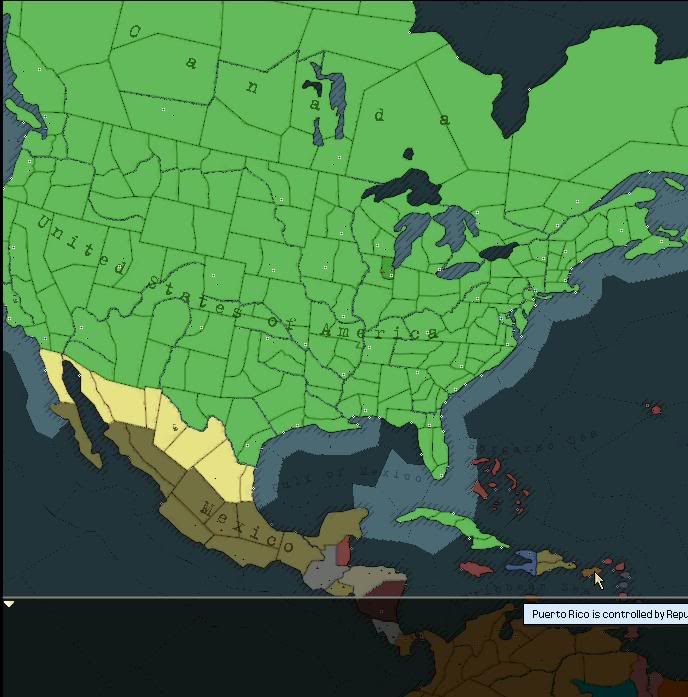
Liberia
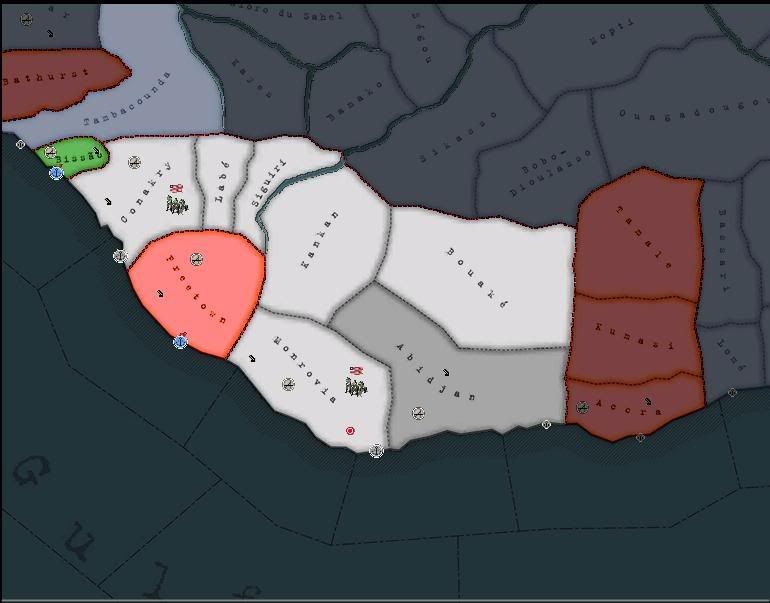
South America
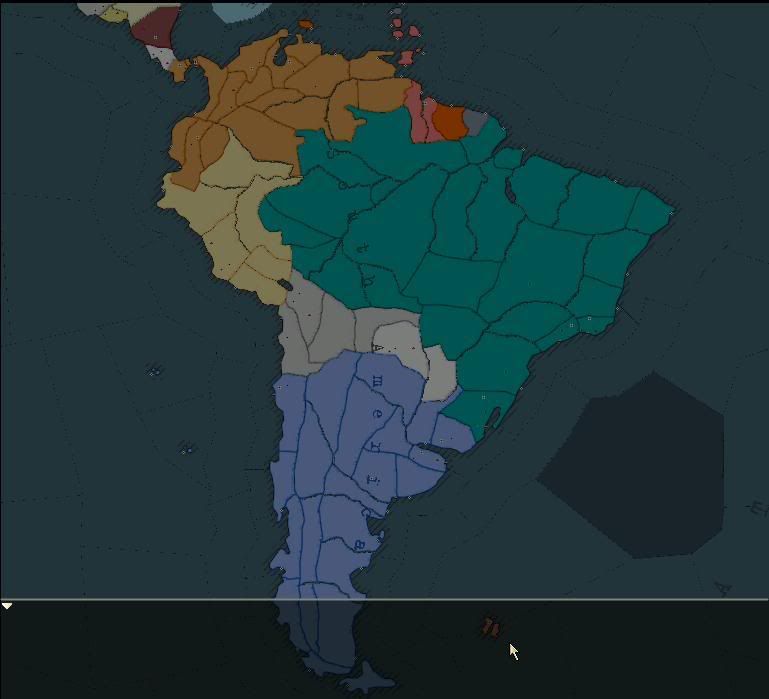
The Pacific
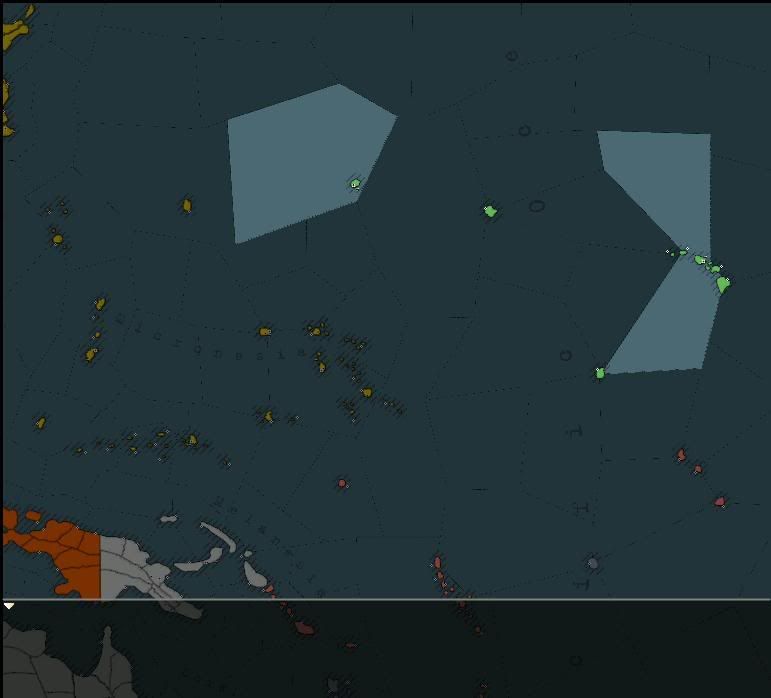
East Asia
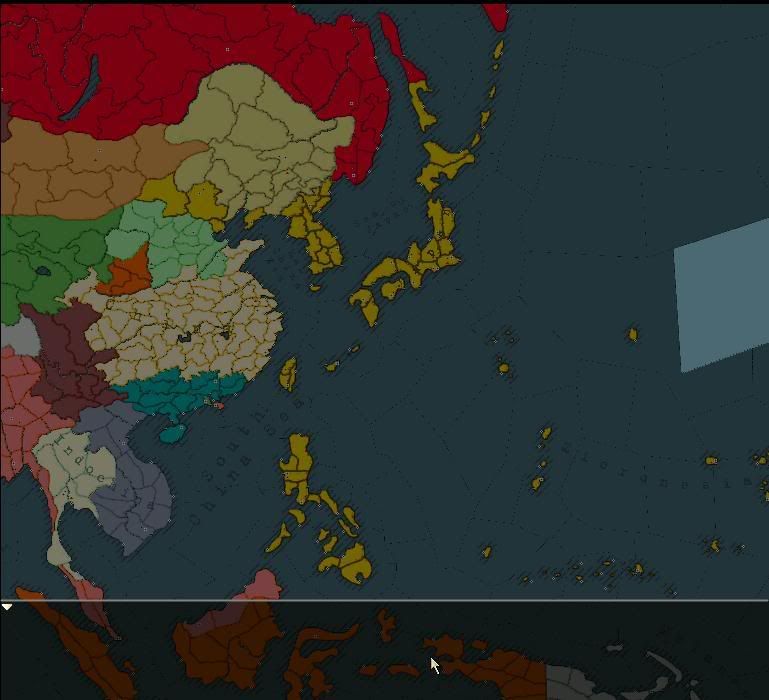
Any picture requests?
Last edited:
I don't mind, I want to see the UNAS bring truth and light and goodness to the world

